-
Courses

Courses
Choosing a course is one of the most important decisions you'll ever make! View our courses and see what our students and lecturers have to say about the courses you are interested in at the links below.
-
University Life

University Life
Each year more than 4,000 choose University of Galway as their University of choice. Find out what life at University of Galway is all about here.
-
About University of Galway

About University of Galway
Since 1845, University of Galway has been sharing the highest quality teaching and research with Ireland and the world. Find out what makes our University so special – from our distinguished history to the latest news and campus developments.
-
Colleges & Schools

Colleges & Schools
University of Galway has earned international recognition as a research-led university with a commitment to top quality teaching across a range of key areas of expertise.
-
Research & Innovation

Research & Innovation
University of Galway’s vibrant research community take on some of the most pressing challenges of our times.
-
Business & Industry

Guiding Breakthrough Research at University of Galway
We explore and facilitate commercial opportunities for the research community at University of Galway, as well as facilitating industry partnership.
-
Alumni & Friends

Alumni & Friends
There are 128,000 University of Galway alumni worldwide. Stay connected to your alumni community! Join our social networks and update your details online.
-
Community Engagement

Community Engagement
At University of Galway, we believe that the best learning takes place when you apply what you learn in a real world context. That's why many of our courses include work placements or community projects.
Science, Engineering and Informatics Researchers
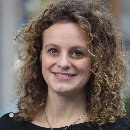
Dr Chiara Cassarini | Scientific Officer at EPA Ireland
It is important to put yourself out there, let the job seekers know what you are doing, what your skills and expertise are, what projects you are involved in and what you have accomplished. I found making contact with someone working in the role I was applying for was extremely helpful and would recommend reaching out on LinkedIn.
University of Galway Posts: Post-doctoral Researcher
Years in University of Galway: 2017-2020
Research Discipline: Environmental Technology
Project Title: Postdoctoral researcher in Environmental Bio-technologies,Use of Sulphur Compounds for Improved Wastewater Treatment and Metal Recovery
Tell us about your experience as a researcher at University of Galway
I joined NUI Galway as a post-doctoral researcher just as the laboratory I was based in was being set up. I was involved in managing the set-up of the lab including the tendering for new equipment and organizing installation, validation and maintenance of the equipment. The management and problem-solving skills I gained were very helpful to me in getting the position I am currently in and are also very useful in my day-to-day activities at the EPA. My mentor at NUI Galway gave me the opportunity to supervise PhD students as well as international interns. Through this experience I developed leadership and communication skills, both highly relevant to my current role. As well as the technical expertise I acquired in microbial and chemical analysis for the improvement of anaerobic wastewater treatment systems, bio-recovery of added-value products and bioconversion of waste gas to energy, I also gained experience in the analytical laboratory management sector. At NUI Galway I also took formal training in Project Management, Procurement and Teaching. I volunteered for the public engagement initiative “Cell Explorers” and also established a series of talks for the public about the environment in a café in NUI Galway. I also delivered talks to interested industry parties through the PorterShed. These experiences strengthened my skills in communicating to a range of diverse stakeholders, skills which I use every day in my position at the EPA.
Tell us about your career journey since your time at University of Galway
When my contract at NUI Galway was coming to an end in 2020, I started to focus on finding the next opportunity. I always had it in my mind that I would like to work for an agency like the Environmental Protection Agency (EPA). To broaden my search, I applied for different jobs in academia, environmental centers and industry and also contacted recruiters. When I finally saw a job opening at the EPA I spent a lot of time and effort on preparing the application, taking on feedback and improving. To give myself the best possible chance of succeeding I made contact with an employee at the EPA who was working in a similar role. The RDC put me in touch with an EPA contact who had previously worked as a researcher at NUI Galway, who then referred me on to someone working in a position similar to the one I was applying for. This experience was extremely useful, both to hear about what it was like to work in that particular position at the EPA and also to get an idea of what the interview might entail. I was delighted that I was successful and got the job at EPA Ireland as a Scientific Officer, which was exactly what I wanted to do. I have been working there since.In my current position I am involved in undertaking environmental sampling of surface water, groundwater, effluents, wastes and performing analysis of samples of water, wastewater and other media using a range of modern analytical techniques and instrumentation. I also liaise with local authorities and other outside bodies. I am taking all available opportunities to upskill and continuously improve my performance and progress further in my career at EPA.
What advice would you give to current University of Galway researchers?
I would advise researchers to make the most of the opportunities available at NUI Galway for career development while you are there. When looking for your next position, in my opinion the best thing to do is to have in mind a few different companies or research groups you would be interested in working in. Look at the qualifications and experience required for the position, upskill in that field and build up a good network. It is important to put yourself out there, let the job seekers know what you are doing, what your skills and expertise are, what projects you are involved in and what you have accomplished. I found making contact with someone working in the role I was applying for was extremely helpful and would recommend reaching out on LinkedIn.
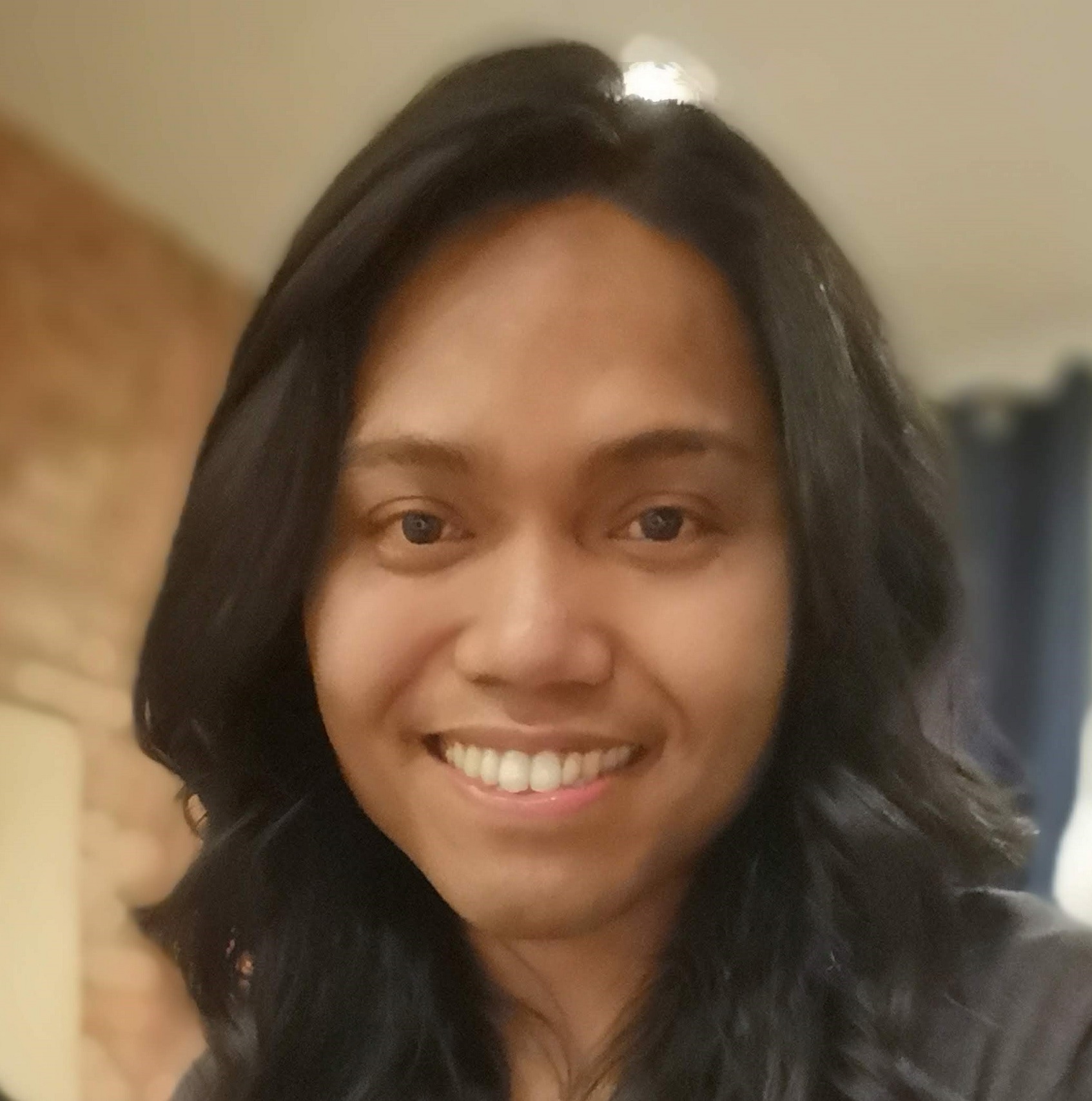
Dr Reduan Atan | Senior Coastal Modeller at Mott MacDonald
Think thoroughly about what you want to achieve in your career, and whether that is in academia or industry. If you have no experience in industry, I would advise that you consider spending a year or two working in an industry setting. Once you have experienced both (academia and industry), you should be able to find the right career path to move forward, and the one that best suits your skills.
University of Galway Posts: PhD researcher; Postdoctoral Researcher
Years in University of Galway: 2013-2017;2018-2019
Research Discipline: Civil Engineering
Project Title: A numerical modelling investigation of the wave resource at Ireland's wave energy test sites (PhD); Hydrodynamic model of Killary Harbour fjord, Ireland, to investigate biological particle transport from salmon cages into the main water body in the harbour (Postdoc)
Tell us about your experience as a researcher at University of Galway
I came from an industrial background (I was a coastal modeller) before starting my PhD and, therefore, my previous experience was very useful to my research. As for my PhD experience, I think that a PhD is the period when you can learn and explore the most. However, you do need to set your own career goals as well, and aim to achieve them! I had two fantastic supervisors (Dr Jamie Goggins and Dr Stephen Nash) who supported me during the most difficult time in my PhD; that helped a lot too. As for my post-doc experience, the fundamentals were the same, since my project utilised similar skillsets and knowledge to my PhD (coastal engineering, numerical modelling, programming, statistical analyses and report/scientific writing), but the challenge was to use a different software/tools to complete the objectives of the project. My time as a researcher in NUI Galway was a very rewarding experience; NUIG is a good place to gain experience in academia.
Tell us about your career journey since your time at University of Galway
The reason why I did my PhD and worked as a Post-doc was to gain experience in academia. Once I had that experience, I decided to go back to industry, where I’m currently working in an engineering consultancy company as a senior coastal modeller. In terms of your career journey, I would say that your choices should depend on how you want to progress your career and which path best suits you. For example, as a researcher in academia, you will have to secure your own funding to keep going, and you will usually work independently. In contrast, you may have a bigger team if you work in industry and will be exposed to many different types of projects too. Therefore, I choose to return to industry instead of continuing in academia.
What advice would you give to current University of Galway researchers?
My advice is: think thoroughly about what you want to achieve in your career, and whether that is in academia or industry. If you have no experience in industry, I would advise that you consider spending a year or two working in an industry setting. Once you have experienced both (academia and industry), you should be able to find the right career path to move forward, and the one that best suits to your skills. This is solely based on my experience as a coastal modeller – there aren’t many out there, and I am glad to be one of them.
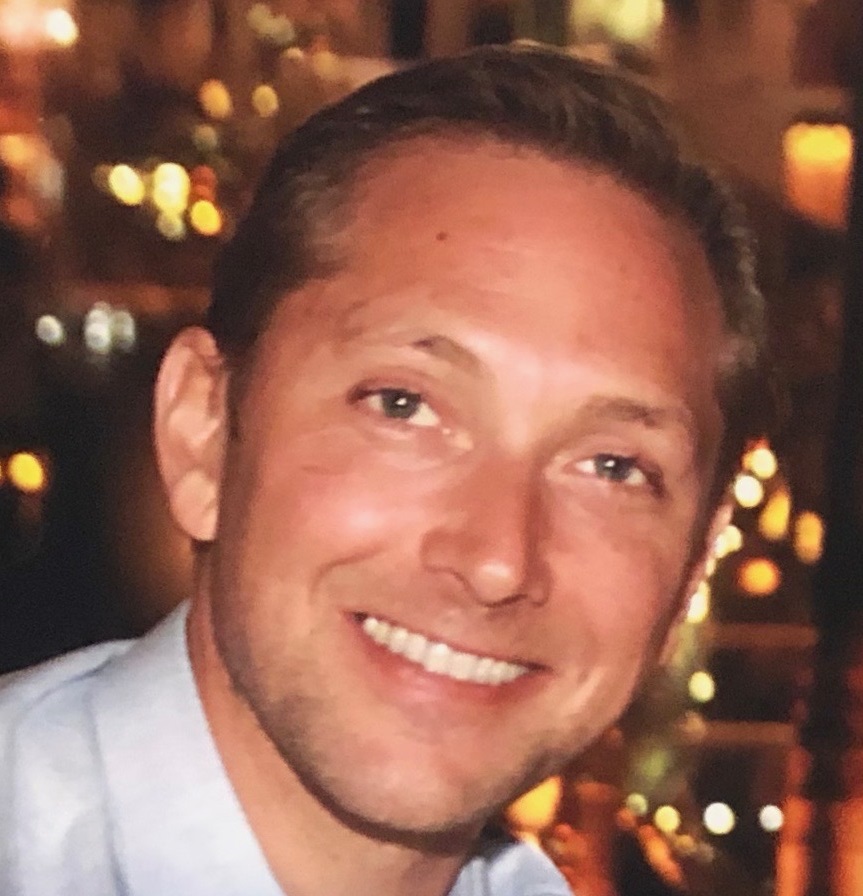
Dr Heinrich Anhold | CEO at Epona Biotech
Look outside and broaden your understanding of what career paths may suit you best; there really is a world of opportunity out there in science
University of Galway Posts: PhD researcher
Years in University of Galway: 2003-2007
Research Discipline: Biochemistry
Project Title: Protein recruitment to chromatin after UV damage of DNA: SV40 minichromosomes reveal novel protein activities in an XPA independent UV damage response
Tell us about your experience as a researcher at University of Galway
During my PhD I learned a lot of technical skills, bench work and how to interpret scientific data. I worked at the Department of Biochemistry which was large at the time, it was also very well funded. I gained a lot from interacting with so many different people working in various areas of biochemistry and molecular biology. In fact, one of the things I value the most from my time at NUIG was getting to spend time with other scientists. It was this time and interaction, spent in the right environment, that helped me to develop my scientific and critical thinking skills.
Tell us about your career journey since your time at University of Galway
I founded Epona Biotech (trading as StableLab) in 2008 after finishing my PhD in Biochemistry. I basically started from my bedroom with money I had raised from selling a Grand Prix showjumper that I had bred and trained myself. In 2010, after signing a technology licensing deal with Philips Electronics, I raised our first round of Angel investment and started to hire staff. Epona was awarded Ireland's Best Emerging Company of 2010 and I was listed as one of Ireland's Top 40 Under 40 entrepreneurs. I went on to discover that a protein in blood called Serum Amyloid A can be used to detect infections with 30 times greater sensitivity that a thermometer. More importantly, it can be used to monitor if antibiotic treatments are working. I patented these discoveries and, in 2015, I began to publish research papers supporting my claims. The body of evidence to prove my discovery continues to grow and grow. In 2019 I sold Stablelab to Zoetis, the World's leading veterinary company, who have began to scale the product to its full potential in the equine market. I'm the scientist from the west of Ireland who discovered a new use for a known protein. I then turned that discovery into a handheld blood test and turned that blood test into the fastest growing brand in the equine veterinary sector. Now, together with my team and our partners, I'm focussing on commercialising the same blood test in other markets.
What advice would you give to current University of Galway researchers?
In my experience, the culture at university was understandably focused on academia as a career path. There was little discussion really around what other career options existed. My advice would be to look outside and broaden your understanding of what career paths may suit you best; there really is a world of opportunity out there in science. I attended a Nature Careers conference in London which I found very helpful and broadened my perspectives. I was always of the mindset that the first 2 years after graduating are particularly valuable. It's a time when you can afford to take bigger career risks, and create a life journey that you may not have the opportunity to take again. If things don't work out, you can always move forward with a safer option. It becomes more difficult to make those career moves as you begin to build your CV.
Dr Claire Concannon | Science Outreach Projects Coordinator at Otago Museum
If you want to go on to do further research and get a career in academia go for it! But if not, don't feel any sense of shame around leaving or doing something different. Don't feel like it was a waste of time doing a PhD either, because the skills you gain around self motivation and project management are invaluable, and the difference between people who have been through this process and not is super noticeable in the workplace.
University of Galway Posts: PhD researcher
Years in University of Galway: 2009-2013
Research Discipline: Biochemistry
Project Title: Investigating novel factors that affect trinucleotide repeat instability
Tell us about your experience as a researcher at University of Galway
I had a great experience in a supportive environment for my research. There were a few very important opportunities that I got to avail of that helped me a lot. Firstly, my supervisor supported me to attend several international and national conferences and present my work, including in my first year of PhD, which I think was absolutely invaluable. Secondly, I was also supported when I decided to attend an outreach workshop in the UK run by the Biochemistry Society, and to take part in science outreach in NUI Galway, as well as some science communication challenges/competitions. Thirdly, for my scholarship I had to demonstrate in undergraduate labs. I really enjoyed this and was able to get further work doing tutorials and giving introductory lectures in the department, which helped me to explore my interest in passing on knowledge to other people and to hone my teaching skills. Skills I gained during my PhD that I use most often now are project management and organization, as well as all of the styles of communication that I learned - public presentation, writing, visual reports and condensing complex scientific knowledge into teachable parts, regardless of who the audience is. It also helps a lot that I've gone through the process of doing a PhD; it makes it easier for me to relate to the scientists that I interact with now, because there is a shared PhD/research experience.
Tell us about your career journey since your time at University of Galway
I finished my PhD in October 2013 and started working part time with an outreach program in NUI Galway called Cell EXPLORERS, established by Dr. Muriel Grenon. The program was in its second year and had just got funding to pilot a final year project in science outreach. I helped develop and deliver this pilot. I also worked part time doing lab demonstrations. After I took some months off (to travel) I returned to work for Cell EXPLORERS where I got the position as national coordinator, which I worked in for two years. This involved helping with the coordination of outreach activities in Galway, training and coordinating Cell EXPLORERS teams in other institutions (Tralee IT, Dundalk IT, UL) and supervising the final year science outreach project component. I also managed the Cell EXPLORERS lab spaces and website. Cell EXPLORERS is all about engaging children and their families in hands on science on the topic of cellular biology. One of the ways it does this is by empowering undergraduate and postgraduate science students to get involved in outreach through training and providing opportunities. It was a demanding job, but a lot of fun, and I really loved working with the enthusiastic student volunteers.
Looking for a change of scenery I applied for a science communicator position in the Otago Museum in Dunedin in the South Island of New Zealand. I moved to Dunedin in February 2017 with a rough plan of staying for one year but that plan changed when I fell in love with the place! I love working in the museum because there is always something new happening, a new exhibition, a new event, a new activity. And the people I work with are super passionate about what they do, and willing to give new projects a go! I chose an exciting time because a few months after I started the Otago Museum completely remade their Science Centre. As a science communicator I started on the floor in the museum - presenting different planetarium or science shows, explaining different interactives in the science centre. But the museum also expanded their science outreach project portfolio around this time, so I started helping with some project coordination.
Now I am employed as a Science Outreach Projects Coordinator - I work with scientists to develop new outreach activities and I make sure our outreach projects happen, whether this is bringing our traveling climate change exhibition to the Pacific islands, visiting the most remote communities in New Zealand with science activities, organizing outreach around astronomy events, creating a Women in STEM festival, etc. etc.! The great thing about this job is that it is very varied. I get to dream up interesting outreach projects and submit applications for them. I also get to travel a lot around New Zealand and I love getting to see new places through bringing science to communities. In the last three years the Otago Museum has also supported me to do my own passion projects around science communication - I've created a podcast for a local wildlife festival and I've been the onboard outreach officer on a research expedition in the South Pacific Ocean. Something that I love about New Zealand in general and the Museum in particular is that they are strongly supportive of having a good work-life balance. The office is empty by 5 and if we have to work extra time (which we do a lot in outreach) we can take that time back later. This makes a huge difference.
What advice would you give to current University of Galway researchers?
If you want to go on to do further research and get a career in academia go for it! But if not, don't feel any sense of shame around leaving or doing something different. Don't feel like it was a waste of time doing a PhD either, because the skills you gain around self motivation and project management are invaluable, and the difference between people who have been through this process and not is super noticeable in the workplace. And remember, as wonderful as your supervisor may be (or maybe not.... who knows?!) they have probably only ever worked in academia, they don't know anything else, so don't rely on them for career advice if you are looking further afield. If you think you might be interested in science communication start getting involved in different activities and challenges during your PhD. There are loads of opportunities and this will help you figure out if it is right for you.
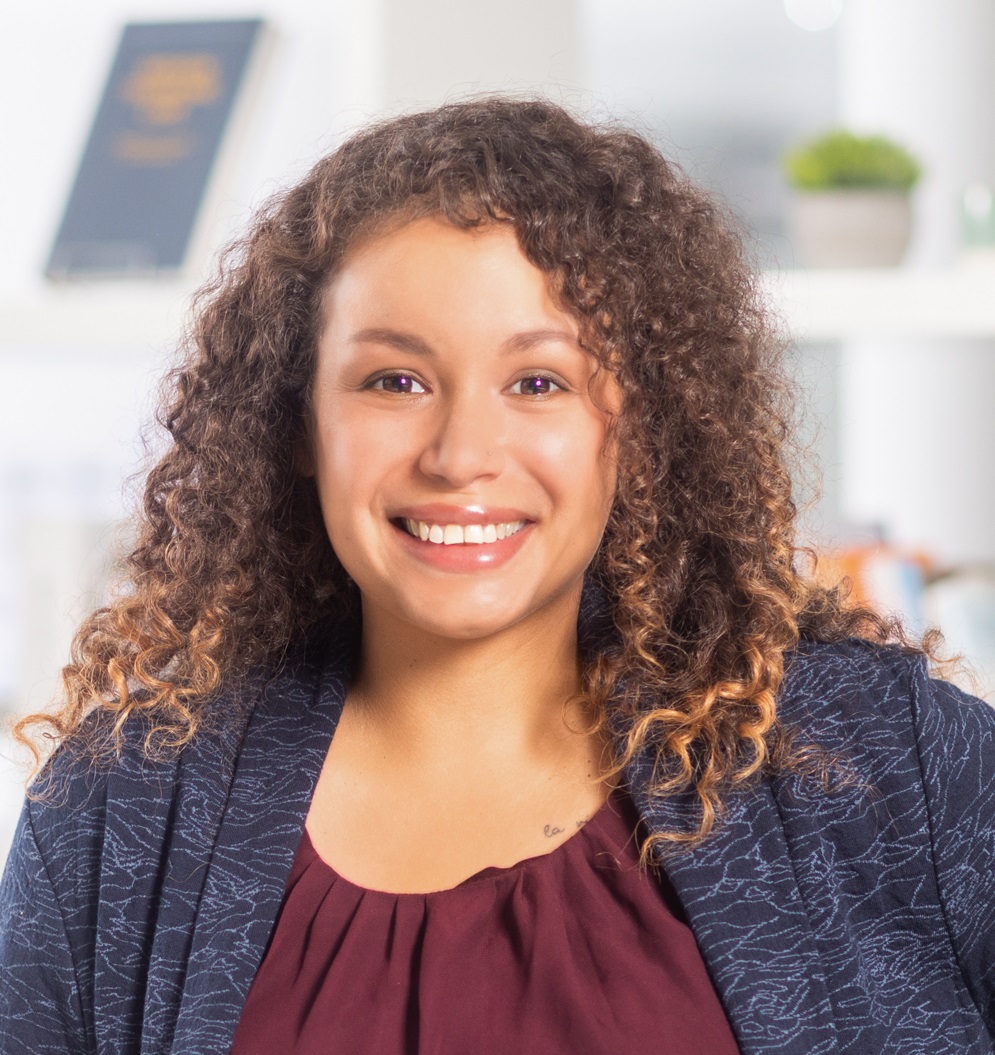
Dr Danielly de Paula | Researcher at the Hasso Plattner Institute
Get out of your bubble and talk with people! Increase your network, learn about what other people are doing, talk with them about their research interest, and see if there is any potential for collaboration.
University of Galway Posts: PhD Researcher
Years in University of Galway: 2015-2019
Research Discipline: Industrial Engineering
Project Title: Design thinking capability model: A management framework to support design thinking implementation for product development
Tell us about your experience as a researcher at University of Galway
My experience at NUI Galway was very enriching. I learned how to work in a multicultural team, how to start a research project, how to apply for funding, how to improve my public speaking skills, and I even developed some mountaineering skills (due to the mountaineering society). In addition to my research experience, one of the highlights of my time at NUI Galway was definitely my participation in the Enactus Society, which helped me to gain valuable leadership and entrepreneurship skills. Another highlight was the Mountaineering Society, which helped me to learn more about discipline, teamwork, self-awareness, and risk taking.
Tell us about your career journey since your time at University of Galway
I am the type of person who enjoys being on the move looking for new things to learn. My first time abroad was in 2015 to do a PhD in a city where it rains every day - Galway! I was coming from a tropical city, and I had very little English. After a little more than one year living in Galway, my English got much better, and I decided to start collaborating with researchers from other countries. In 2016, I then moved to Germany to be a guest researcher at the Hasso Platter Institute for eight months. That experience was really eye-opening for me, and it showed me the importance of getting out and talking with people! After those eight months, I went back to NUI Galway and continued to work on my PhD research and myself. After I finished my PhD studies, I accepted a job offer to start a postdoc at the Hasso Plattner Institute. I am very grateful for all the learning that I acquired during my time at NUI Galway. Now, I am starting my second year as a postdoc, and I am looking forward to what is coming next!
What advice would you give to current University of Galway researchers?
Get out of your bubble and talk with people! Increase your network, learn about what other people are doing, talk with them about their research interest, and see if there is any potential for collaboration. Increase your knowledge and get inspired by other people's research.
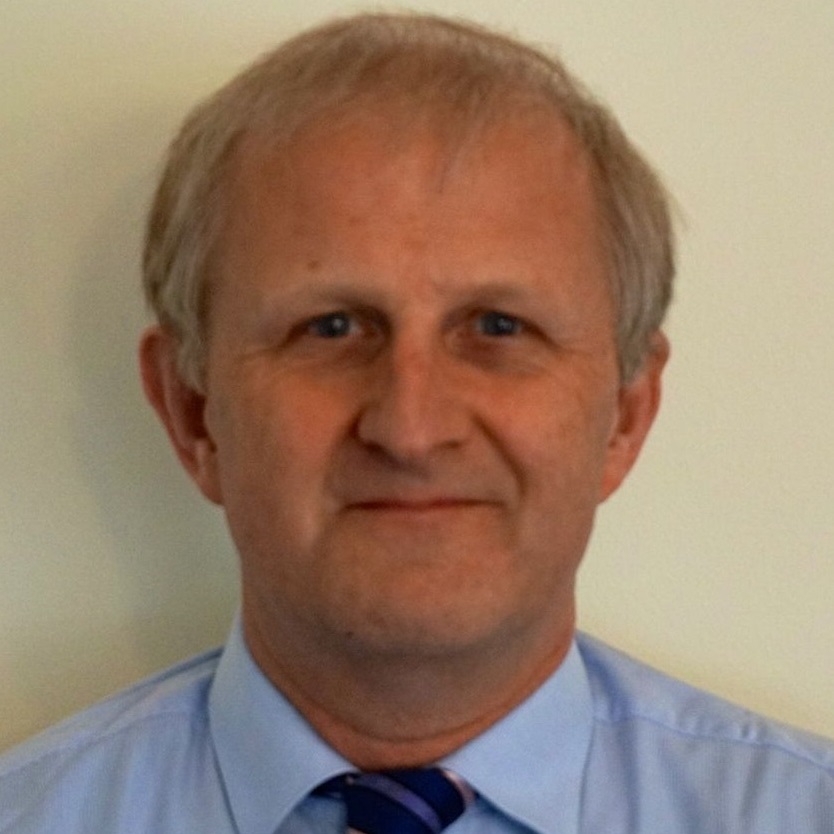
Dr Brendan P. Hughes | VP, Manufacturing Science & Technology, Bristol-Myers Squibb
Learn from your mistakes and setbacks as well as your successes - your early research career is about learning as well as contributing to the literature. Be open-minded about your career prospects. A research qualification teaches you to be an independent, curious critical thinker-those skills are valuable in many different career paths
University of Galway Posts: PhD researcher
Years in University of Galway: 1984-1989
Research Discipline: Biochemistry
Project Title: Cloning and expression of fatty-acid binding protein
Tell us about your experience as a researcher at University of Galway
Innovation, persistence and independence are the key things I learned as a researcher in NUI galway. We started the first molecular biology lab in biochemistry in 1984 and we had to innovate as we didn't always have the materials we needed. For instance, initially, we had our autoradiographs developed by the NUIG Hospital X-Ray Darkroom. I learned persistence and resilience because things don't always work out the first time as a young researcher. I also learned independence. Although we had an excellent team in our lab, you are ultimately accountable for managing your own research timelines and outcomes.
Tell us about your career journey since your time at University of Galway
I started my career outside NUIG as a post-doctoral researcher at the Institute of Virology in Oxford. I worked on HIV-1 at a time when there was an enormous need for therapies to control the spread and impact of the disease. I worked on structural mutants using the skills I had learned at NUIG and also created some prototype particles as vaccine candidates. As a molecular biologist, I got a particular thrill at being able to see the constructs I made using an electron microscope. I joined the pharmaceutical industry in the UK in 1991, where I led a small group of scientists characterizing the cell lines we used to make biopharmaceuticals. I spent 10 years in that company and then I spent some time in the US before moving to Ireland between 2003 and 2010 when the company I worked for built the first large-scale biotech plant in Ireland. There I led the science and technology team and became a member of the site leadership team. We worked on biotech recombinant protein drugs as well as on vaccines. In 2010, I went back to the US to take on a wider international role, still leading science and technology teams. I joined BMS in 2012 in the US because I wanted to learn about the new immuno-oncology agents being developed in biotech and I had the privilege on being part of the manufacturing team that brought some of these to patients.
What advice would you give to current University of Galway researchers?
Pick a project you are really excited about. This helps to maintain energy and enthusiasm through the project. Learn from your mistakes and setbacks as well as your successes – your early research career is about learning as well as contributing to the literature. Be open-minded about your career prospects. A research qualification teaches you to be an independent, curious critical thinker – those skills are valuable in many different career paths.
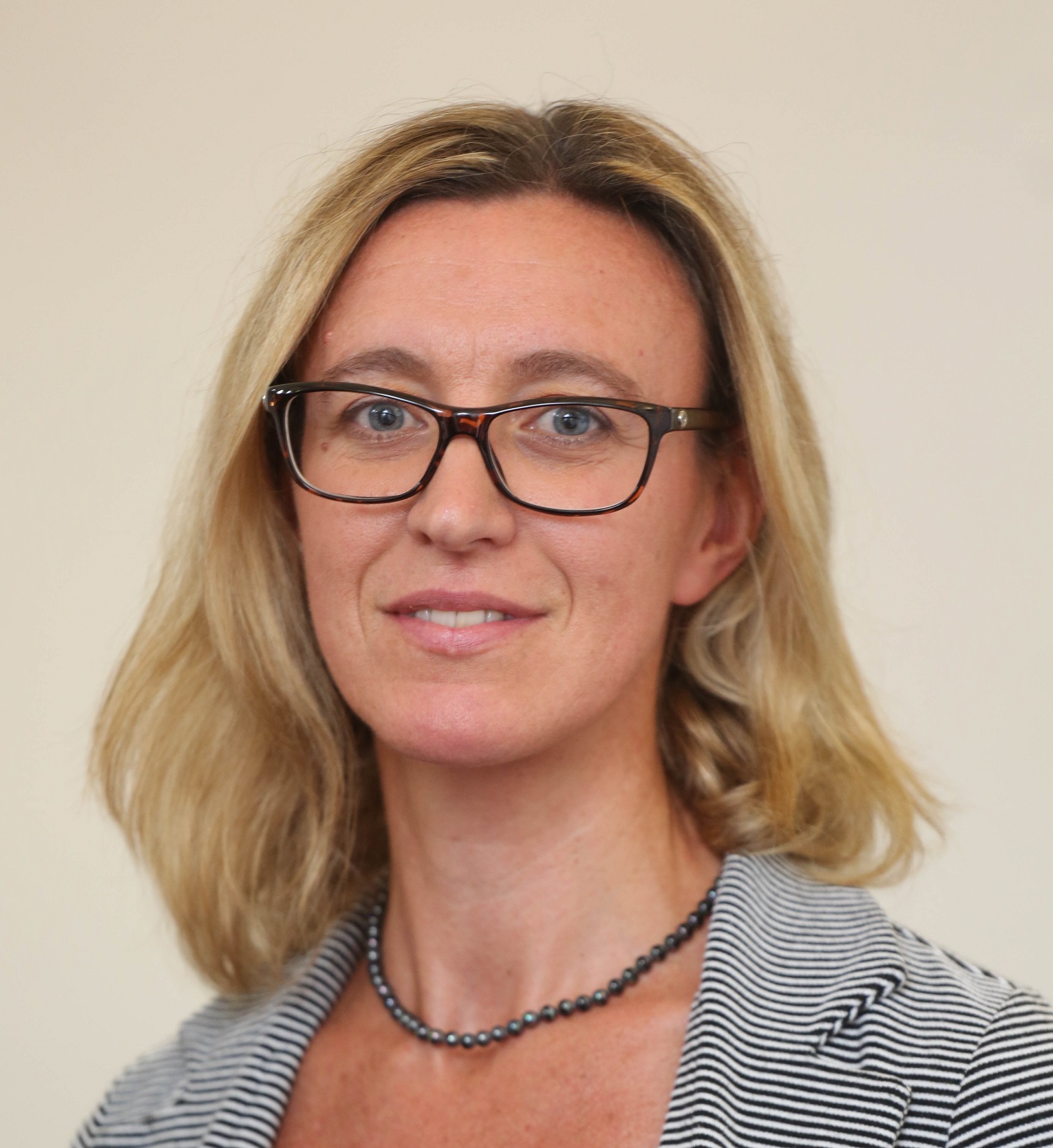
Dr Silvia Maretto | Senior Research Support Officer at NUI Galway
Allow yourself to explore research related training or experiences beyond strictly the project you are working on; you will have a more adaptable mind when it comes to a job market and a lot more to offer to that market
University of Galway Posts: Research Fellow; Project Manager
Years in University of Galway: 2008-2017
Research Discipline: Biochemistry
Project Title: Insights into 53Bp1 function through a proteomic analysis
Tell us about your experience as a researcher at University of Galway
I joined Professor Noel Lowndes' lab in the discipline of Biochemistry at NUI Galway for my second post-doc, after my 5 year post-doc in the UK. I spent 5 years there, working on a challenging proteomic project aimed to identify new candidate proteins involved in the DNA damage repair cascade. My move to Ireland and NUI Galway coincided with a change of field in terms of research area, and with that I had to learn a whole set of new technical skills in the lab. Moreover, having joined the lab as an experienced post-doc, I was given the invaluable opportunity of both supervising 4th year and PhD students, and of lecturing on behalf of my supervisor. Both experiences widened my horizons as a researcher and empowered me with skills that turned out to be extremely useful in my following career outside the lab. During this time, I was also encouraged by my supervisor to apply independently for funding opportunities. This proved to be a very rewarding investment of time and energy, as it allowed me to gain knowledge of the national funding landscape relevant to my research area and forced me to work and improve my proposal writing skills.
Tell us about your career journey since your time at University of Galway
Following my 5 year lab based post-doctoral experience in Biochemistry, I worked part-time as project manager for a European grant coordinated by Professor Gerard Wall in Microbiology. Up to this point in my career I had been exclusively dedicated to wet lab research and therefore the project management experience represented a real change of profession and required a new mind setting. Fully supported by the generosity of Professor Wall, who taught me everything I needed to know on the new job, I was able to overcome the predictable initial challenges. During this time I was offered by HR the opportunity of joining the Research Office in NUI Galway on a part-time secondment for 3 months, while keeping my project management job. I thoroughly enjoyed my brief albeit intense time in the Research Office. I particularly loved the teamwork dimension associated to the role and the interaction with researchers from all different disciplines. A few months after I had concluded my secondment in the Research Office I spotted a job ad for a permanent position in the office and i did not hesitate to apply. I was very fortunate to be invited to an interview for the role and even more fortunate to be deemed successful. So here I am, exactly 3 years later, still enjoying the job, hopefully more knowledgeable and still eager to learn more.
What advice would you give to current University of Galway researchers?
Researchers, especially early career researchers, now have a lot more training opportunities (beyond the technical training associated to the individual project) than I had when I was a PhD student/early career post-doc. I would advise them to make the most of this incredible opportunity. Allow yourself to explore research related training or experiences beyond strictly the project you are working on; you will have a more adaptable mind when it comes to a job market and a lot more to offer to that market. One of the most precious skills for researchers now is being able to engage the public! Learn how to communicate your research passion in an effective way to a non-expert audience and engage with that audience through events and initiatives. It will pay back if you decide not to pursue a career in research, and it will possibly be even more useful if you do wish to pursue an academic position - all funding bodies require such experience!
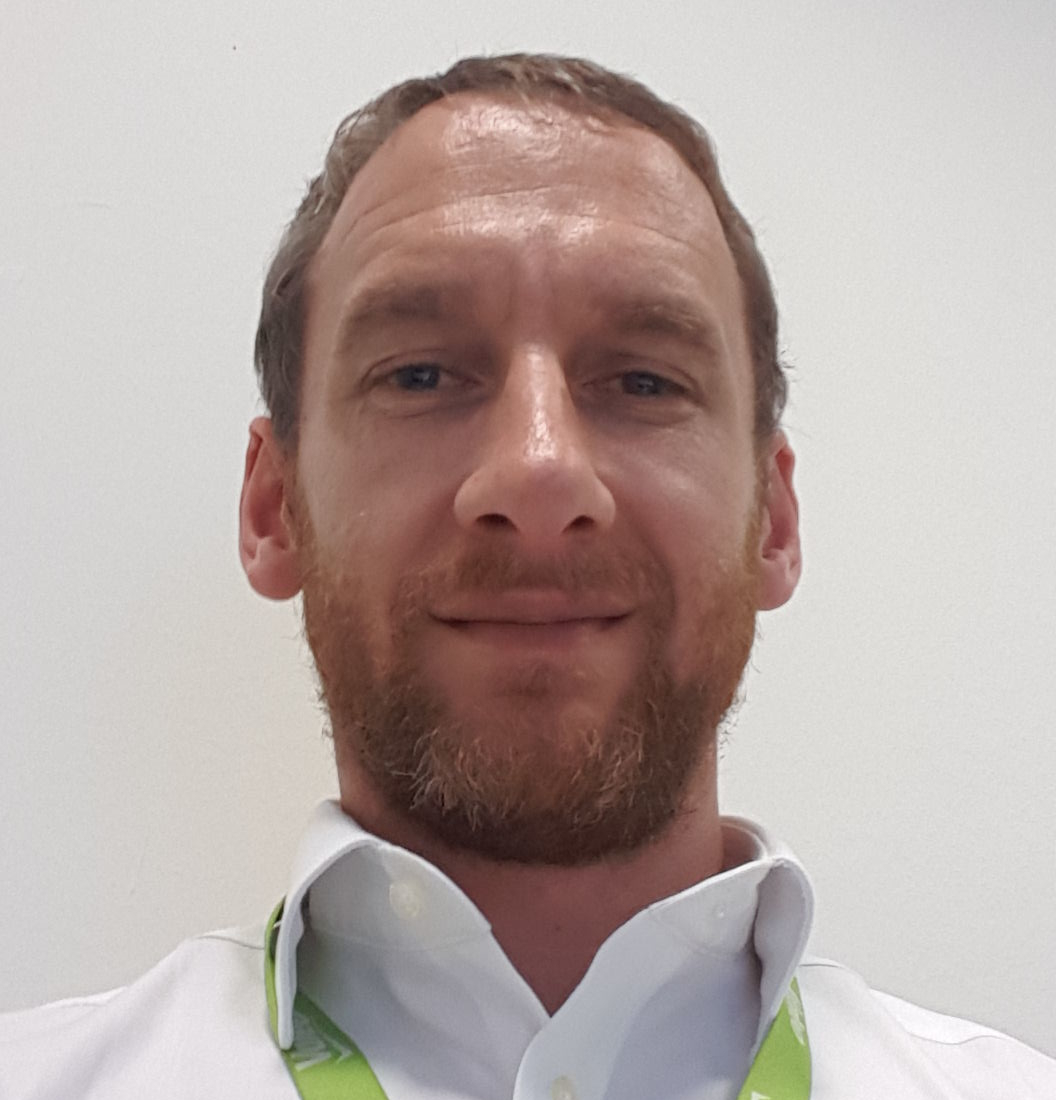
Dr John McDonald | Advanced Engineering Systems Architect at Valeo
Every day at work for me is different, dynamic, challenging and rewarding. The technology that we are developing will save lives, and on top of that I love my job, which makes it very fulfilling
University of Galway Posts: PhD Researcher; Computational Support Scientist & Computational Astrophysicist
Years in University of Galway: 2004-2011
Research Discipline: Computational Astrophysics
Project Title: Development of a 3D PIC code for the simulation of arbitrary kinetic astrophysical plasma phenomena with initial application to the pulsar magnetosphere
Tell us about your experience as a researcher at University of Galway
My time as a researcher in NUI Galway was very beneficial to me. As a PhD student I really enjoyed the opportunity to be involved in teaching. I had access to a phenomenal range of facilities, resources and knowledge that are second to none. This period was very formative for me as a Scientist and I am very grateful to the University for it. As Computational Support Scientist, my role involved interacting with scientists from nearly all of the scientific disciplines in the schools. I found that supporting multiple projects in parallel across a diverse range of research fields helped me in terms of my ability to prioritise, multitask and manage time efficiently. It also aided in my ability to analyse and solve problems from outside my field of expertise by increasing my ability to think abstractly and laterally.
Tell us about your career journey since your time at University of Galway
I left research in NUI Galway in 2011 to pursue an opportunity working with the latest current edge technologies in the automotive sector with Valeo Vision Systems in Tuam, Galway. In hindsight, it was a great time to join the industry, as it aligned well with the emerging use of computer vision and artificial intelligence and other advanced sensor technologies, in the now exploding evolution of autonomous cars. I started in a role which involved integrating computer vision algorithms onto the embedded hardware installed in the vehicles. In 2013, I was promoted to a Valeo Expert in the field and became the lead engineer for this integration activity. In 2017, I was promoted to a Valeo Senior Expert and transitioned to being an Advanced Engineering Systems Architect. Designing, creating and testing these kinds of technologies is an exciting career. Every day at work for me is different, dynamic, challenging and rewarding. The technology that we are developing will save lives, and on top of that I love my job, which makes it very fulfilling.
What advice would you give to current University of Galway researchers?
My advice is simple: hard work pays off, and if you love what you are doing, you will never work a day in your life. Research, be it in an academic or industrial setting, is a lifestyle for those who like to challenge the frontiers of both themselves and of our knowledge and understanding as a species. As Isaac Asimov said — "There is a single light of Science, and to brighten it anywhere is to brighten it everywhere." So take stock of the fact that every day, you are making a difference.
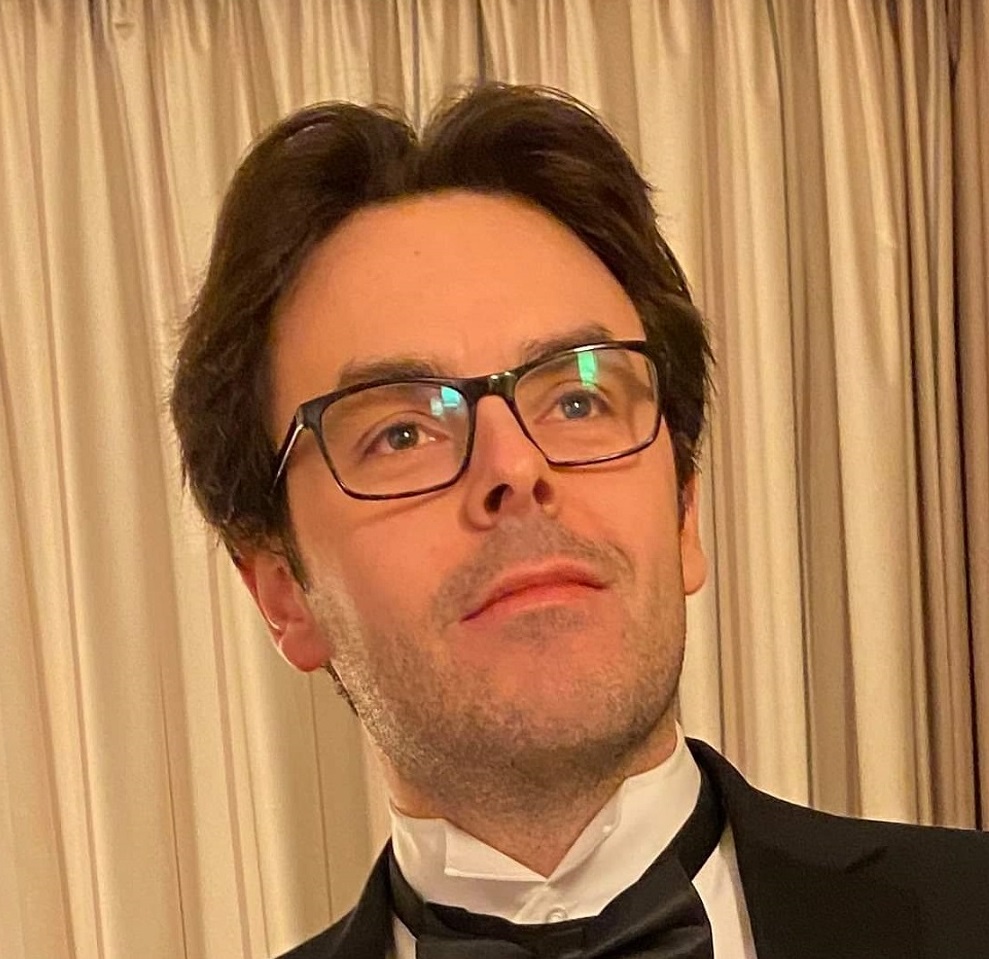
Dr Paul O'Reilly | Medical Science Liaison at Novartis
Do not be afraid of entering industry in smaller companies; use the opportunity to expand your hands-on experience and really work on how to sell your soft skills
University of Galway Posts: PhD Researcher; Postdoctoral Researcher
Years in University of Galway: 2009-2013; 2014-2015
Research Discipline: Biochemistry
Project Title: Identification of decisive molecular interactions regulating resistance to apoptosis in tumour cell lines
Tell us about your experience as a researcher at University of Galway
Being a researcher develops a number of key soft skills which are desired by companies: ability to discuss complex data/theories with a diverse range of individuals from under graduate students to Professors; ability to present data, create materials such as posters and write articles; ability to manage a large multi-year project with multiple stakeholders; ability to provide objective opinions with clear reasoning aligned to a strategy or goal.
Tell us about your career journey since your time at University of Galway
When I left the Biochemistry department in 2015 it was to join a small to medium enterprise (SME) known as Singer Instruments as a scientific sales advisor. Singer are based in Somerset in the UK and specialise in developing instrumentation for genetic research. My role sat between commercial and R&D which was perfect for me! My core functions were to provide insight to marketing strategy, review and approve the scientific content of company materials, have peer to peer discussions with customers and feed into overall strategy. This allowed me to get experience in marketing, customer interactions, sales, quality control and assurance. There are advantages to smaller companies, you get lots of experience! After spending a year with Singer I moved to a global pharmaceutical company in the UK near London. My new role was as a medical information officer which is an office based position (in Singer I was responsible for sales across the east coast of the US and the entirety of the UK so I travelled a lot). My responsibilities here were much less commercial. I focussed on providing scientific data to healthcare professionals in relation to the companies products. This role required strong medical writing and a wide general scientific knowledge varying from neurology, to dermatology, to transplant and oncology.
I spent two happy years as a medical information officer before being promoted to the field based Medical Science Liaison (MSL) position. I have been an MSL for 2+ years and continue in this role today. My territory covers the east of England, London, Kent, Surrey and Sussex. Like my medical information officer role I work with clinicians on medical data they need to better treat their patients. Unlike in medical information I am aligned to one core therapy area known inside the company as IHD (immunology, dermatology and hepatology). In addition to using my scientific expertise to have peer to peer discussions with clinicians on data the MSL role also requires I support and drive clinical trial site selection and patient recruitment, I identify data gaps and work with hospitals to generate said data, design and develop education materials or events, provide training to sales representatives and feed into our medical strategy.
What advice would you give to current University of Galway researchers?
Do not be afraid of entering industry in smaller companies use the opportunity to expand your hands on experience and really work on how to sell your soft skills.















